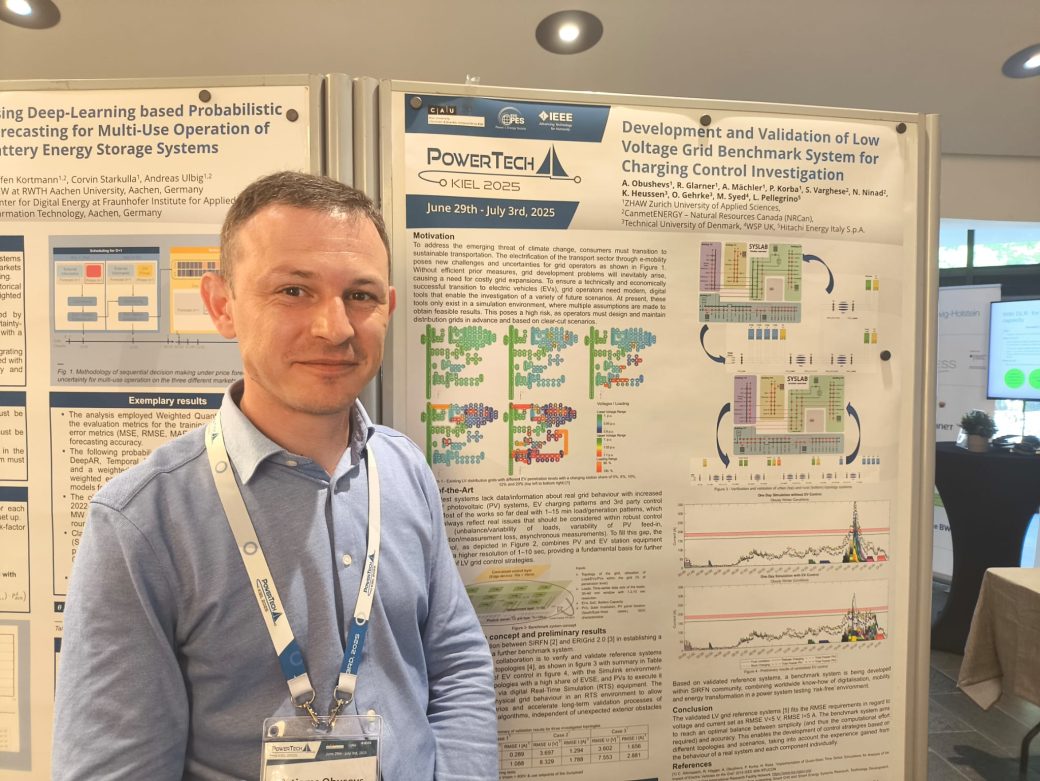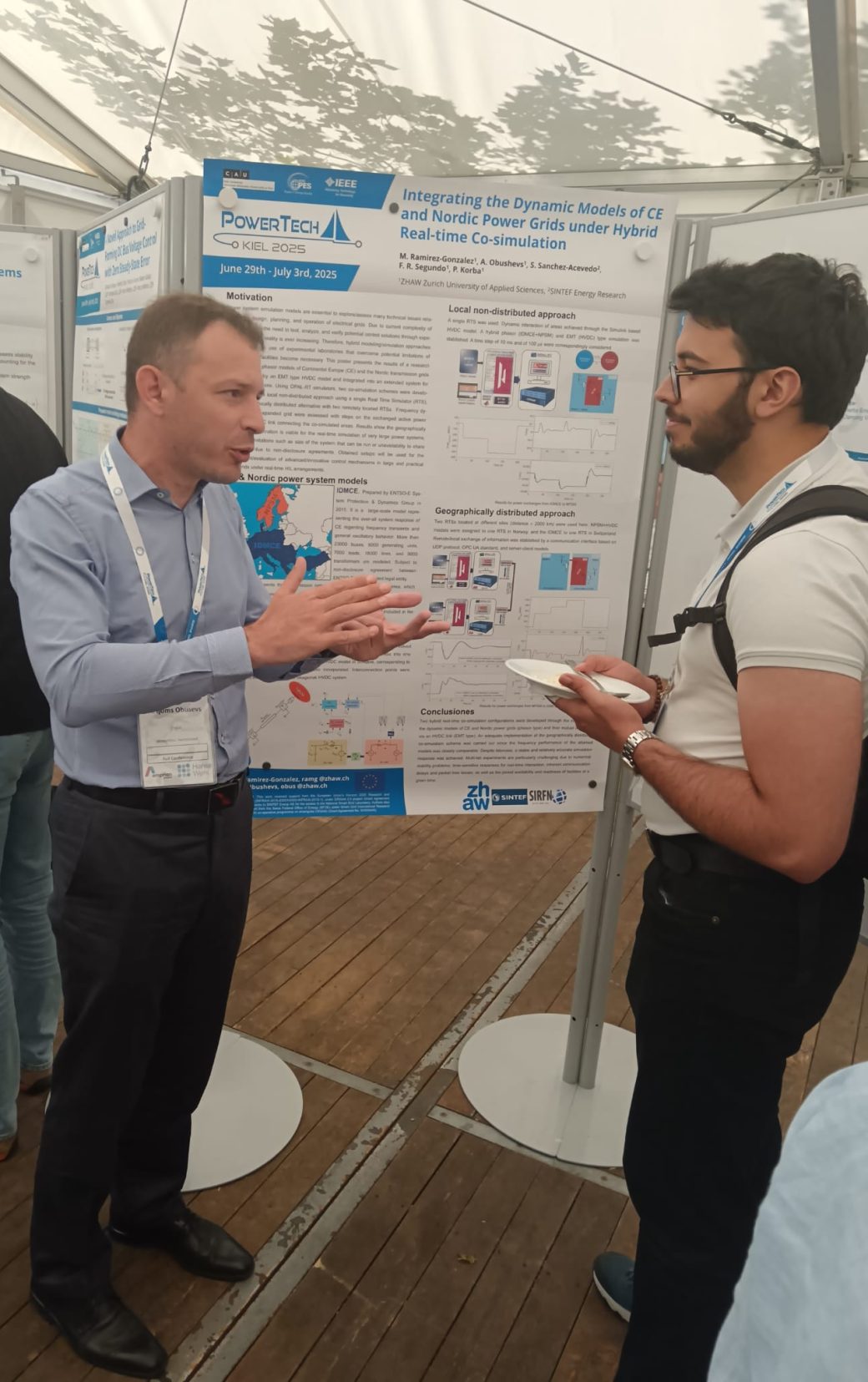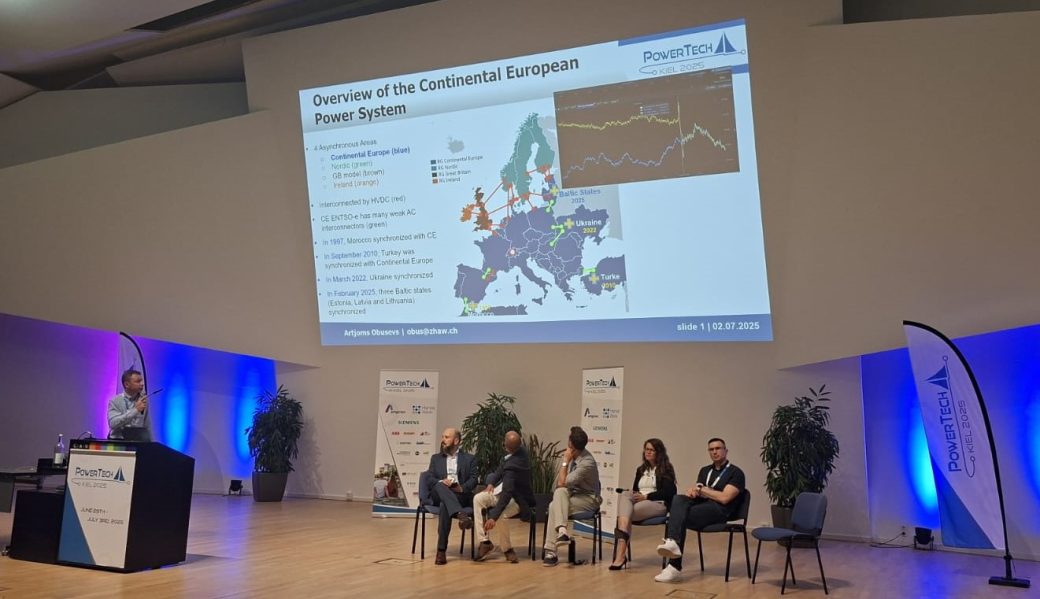His participation showcased the breadth and depth of SIRFN’s ongoing joint research activities, presenting cutting-edge work in the simulation, validation and control of future-ready power systems.
Poster presentation
At the conference, Dr Obusevs presented two posters. The first of them showed the progress of VEHICLE (Validation of bEnchmark system for cHargIng ControL in-vEstigation), which was developed in collaboration with SIRFN partners from the Technical University of Denmark (DTU) (Denmark), RSE (Italy), the University of Strathclyde (UK), and Natural Resources Canada (Canada). Led by ZHAW and supported by DTU’s SYSLAB infrastructure, the researchers created, validated and combined a set of components that make it possible to work with topologies.

These topologies provide a robust testing environment in which researchers and system operators can design and evaluate control strategies for smart infrastructures based on real-world component behaviour.
This work illustrates the value of coordinated access to international laboratory infrastructure — a core strength of the SIRFN platform.
The second poster was created in collaboration with Scandinavian partners from SINTEF Energy Research and explores geographically distributed coupling between two bulk power systems. By combining the initial dynamic model of continental Europe (IDMCE) with the Nordic power system model (NPSM) and a corresponding high-voltage direct-current (HVDC) interconnection, three real-time implementation schemes were developed using OPAL-RT simulators.

This distributed method addresses a critical issue in multinational research by enabling the study of large, complex power systems without the need to share confidential models or data across borders. The geographically distributed scheme offers a viable alternative for very large power systems, overcoming limitations such as system size and restrictions on model sharing due to non-disclosure agreements.
Panel session
As part of Panel Session 6, ‘Key Stability Aspects in the Operation of Future Power Systems: A European Perspective’, Dr Obusevs presented SIRFN’s work on the Open System Validation Platform (OpenSVP). He emphasised the importance of testing converter-interfaced generation to ensure compliance with regional network codes. The Working Group found that this is not always the case, which could pose a potentially significant hidden threat to our power systems.

Artjoms Obusevs’ contributions at PowerTech2025 reflect ISGAN SIRFN’s commitment to facilitating high-quality, collaborative research that informs the design and operation of future power systems. Such activities not only build technical capacity and deliver practical solutions for the global energy transition.